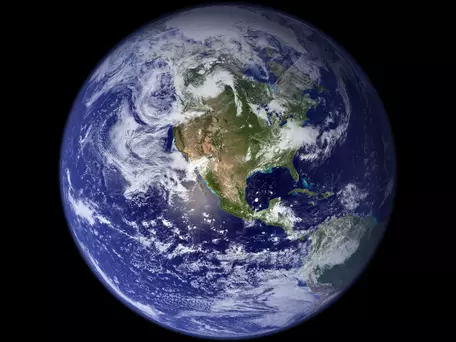
Resources for Teachers
Navigating CLEAN's Virtual Resources
We're here to help you find resources for your virtual classroom. Searching the CLEAN collection by the 'video' and 'visualization' tags will return resources that are completely online. Many 'activities' in CLEAN can be done online as well. Some virtual activities can be found by searching with the key word 'virtual.' You can also sort the resources that have been tagged for 'online readiness,' simply add the "online readiness" category at the bottom of the search and search by the online ready or online adaptable tags. We are continuing to tag resources for the online applicability. We are working with resource developers to link to any supplemental materials or modifications they may be creating for switching to online learning and will add those to the resource pages as we receive them.
Other Resources for Educators
We have collected a list of some of other online teaching resources available for educators:
- "Teach the Earth" - SERC and NAGT have partnered to offer resources for Geoscience educators transitioning for online courses.
- The Earth Science Women's Network community has a running list of online teaching resources. These are especially helpful for higher learning educators.
- The University of Colorado Physics Department offers a free library of interactive simulations for science and math.
- The Global Weirding Video Series from PBS and Katharine Hayhoe discuss climate and energy topics in fun, animated short videos.
- The National Parks offer a wide variety of options for remote learning. This blog offers a description of some of the creative ideas to utilize the National Park resources. Climate change themed resources are also available on the National Park Service Website and virtual tours of some National Parks are highlighted here.
- Here is a consistently updated list of museums offering at home activities.
- Dr. Jennifer Baumgartner (Associate Professor at Louisiana State University) put together this guide for maintaining active learning strategies with distance learning.
- The U.S. Ice Drilling program's School of Ice, funded by the National Science Foundation, has climate-themed Virtual Field Labs. Join leading climate scientists as they take students into the field with them to conduct climate research. Students will use their own science notebooks to make observations and measurements, collect data, and make graphs and interpretations. Each Virtual Field Lab series consists of three videos. In the first video, students get to know the climate scientist and are introduced to the question that will be investigated. Episodes two and three engage students in collecting data along with the climate scientists in an effort to better understand our climate future.
- Climate Clues from the Past: Dr. Meredith Kelly looks at geologic clues from the end of the last ice age for insight into how our current ice sheets may respond to the rapid warming of our planet. Episode #1; Episode #2; Episode #3
- Abrupt Climate Disruptions: Dr. Erich Osterberg explores abrupt climate disruptions in the past as a way to predict the abrupt climate changes we can expect in the future. Episode #1; Episode #2; Episode #3
- Climate Warnings from Alaska: Dr. Dom Winski analyzes how snowfall and snow melt events have changed since fossil fuels became the dominant fuel source for humans. Episode #1; Episode #2; Episode #3
Learning Sessions/Webinar Series for Students
Here is a list of organizations that organize virtual learning sessions or connections with scientists around climate topics:
- The Cooperative Institute for Research in Environmental Sciences Center for Education, Engagement, and Evaluation (CIRES CEEE) organizes a Science Show and Share Series.
- NSF-NCAR (the National Center for Atmospheric Research) hosts a Science Explorer Series.
- The Earth Institute at Columbia University hosts a series featuring experts presenting relevant sustainability content in 60-minute live sessions for K12 students and educators.
- The Skype a Scientist Program facilitates virtual classroom visits with scientists.

